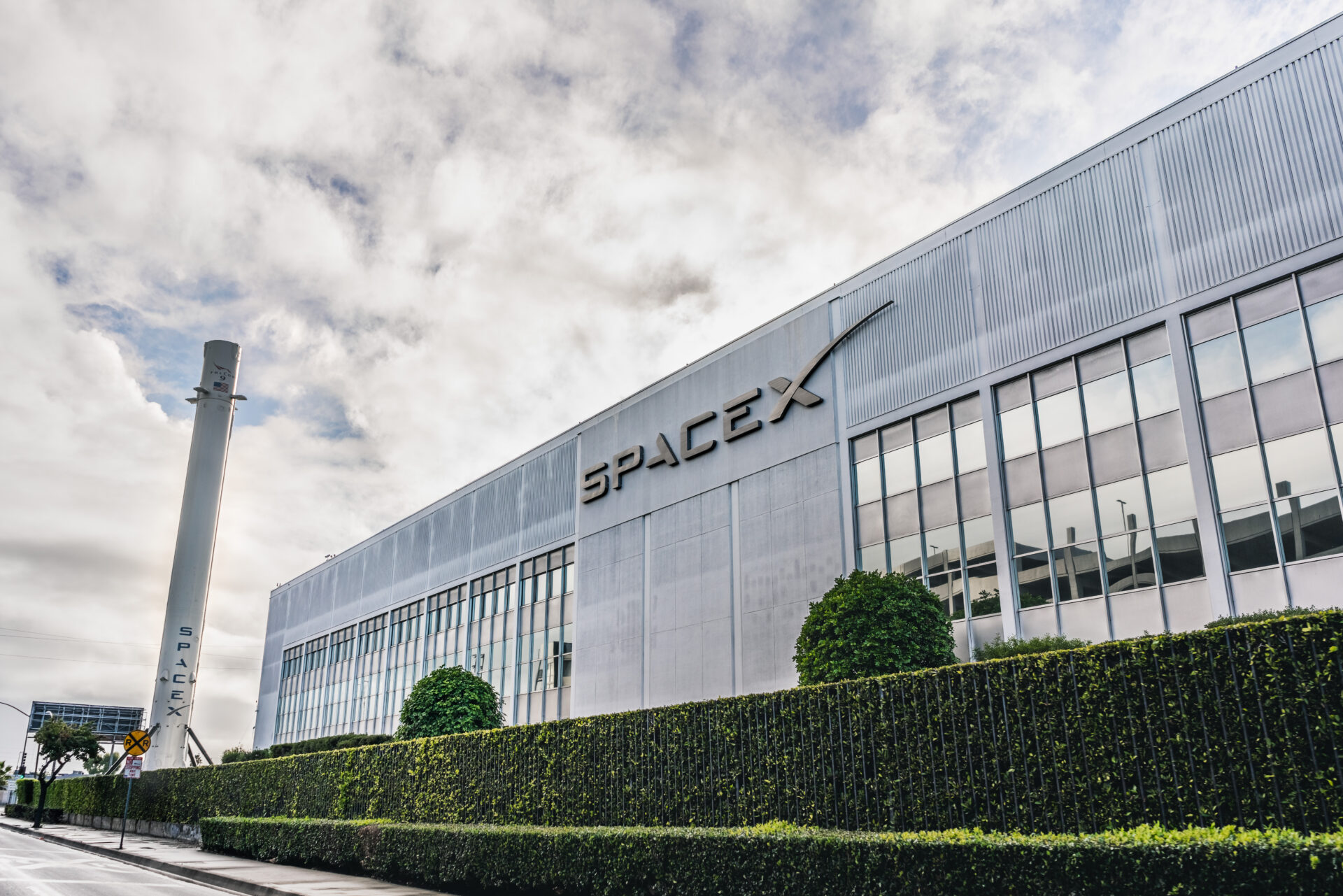NASA’s decided that instead of owning the delivery systems buying rides to the Moon to investigate and test new technology systems they can do much more, sooner and for less cost if they outsource human space flight to the private sector, allowing rich men to lead humanity into the cosmos.
This has led to a space race of epic proportions as the world’s billionaires, who claim they won’t rest until they really do ‘have it all’, hedge their bets and enter the rocket business.
Last year, Amazon chief Jeff Bezos’s space company Blue Origin led a consortium of aerospace heavyweights to bid for a 15 year $7 billion contract for logistics support for the first NASA moon landing since 1972. Elon Musk’s Space X was another contender along with a unit of Leidos Holdings Inc.
NASA assumed a cost of one million dollars per kilogram delivered to the lunar surface.

Hawthorne / Los Angeles / CA / USA – SpaceX (Space Exploration Technologies Corp.) headquarters; Falcon 9 rocket displayed on the left;
Elon Musk’s SpaceX won the first contract after 10 months of development work. The contract covers two lunar landings: a test flight with crew, followed by a trip carrying astronauts.
Other companies could see future lander contracts. NASA admitted the decision to select SpaceX was a ‘high risk’ one, so it wants multiple providers for future lunar landings.
This didn’t stop Bezos from contesting the NASA decision, saying it was ‘flawed’ and that the decision eliminated opportunities for competition, and significantly narrows the supply base and delays and endangers America’s return to the Moon.
Elon retaliated with a stinging tweet, ‘NASA rules’.
This comes after his prophetic address at the International Astronautical Congress in September in 2017 when he declared ‘the future’s gonna be great’.
Neither billionaire has committed to taking the mission themselves.
Learn the who’s who of the next business frontier

Exploring Mission To Mars
- Billionaire Sir Richard Bransonis the founder of the Virgin Group, the parent company of the spaceflight business Virgin Galactic. Branson was the first to venture into the space race.
- Elon Musk – When not hosting Saturday Night Live and smoking weed, Elon Musk is also digging tunnels, creating new generation cars and running a rocket company SpaceX, a private space-exploration company.
- Jasaku Maezawa – Fellow billionaire Yusaku Maezawa has invited eight people to join him on a fully paid round trip to the moon on Elon Musk’s SpaceX flight scheduled for 2023, but one of them must be ‘a single woman’.
- Jeff Bezos – Bezos founded the spaceflight company Blue Origin in 2000 and has entered into a Launch Services Agreement partnership with the U.S. Air Force.
- Robert Bigelow – Bigelow is the owner of both the hotel chain Budget Suites of America and the aerospace company Bigelow Aerospace. The space company designs and manufactures modules for space stations.
- Larry Page – the Google co-founder is one of the main financial backers of Planetary Resources, an asteroid mining company that intended to begin mining operations in 2020. But there’s been no further updates on the initiative suggesting that space mining is still science fiction and some way from becoming a reality.

